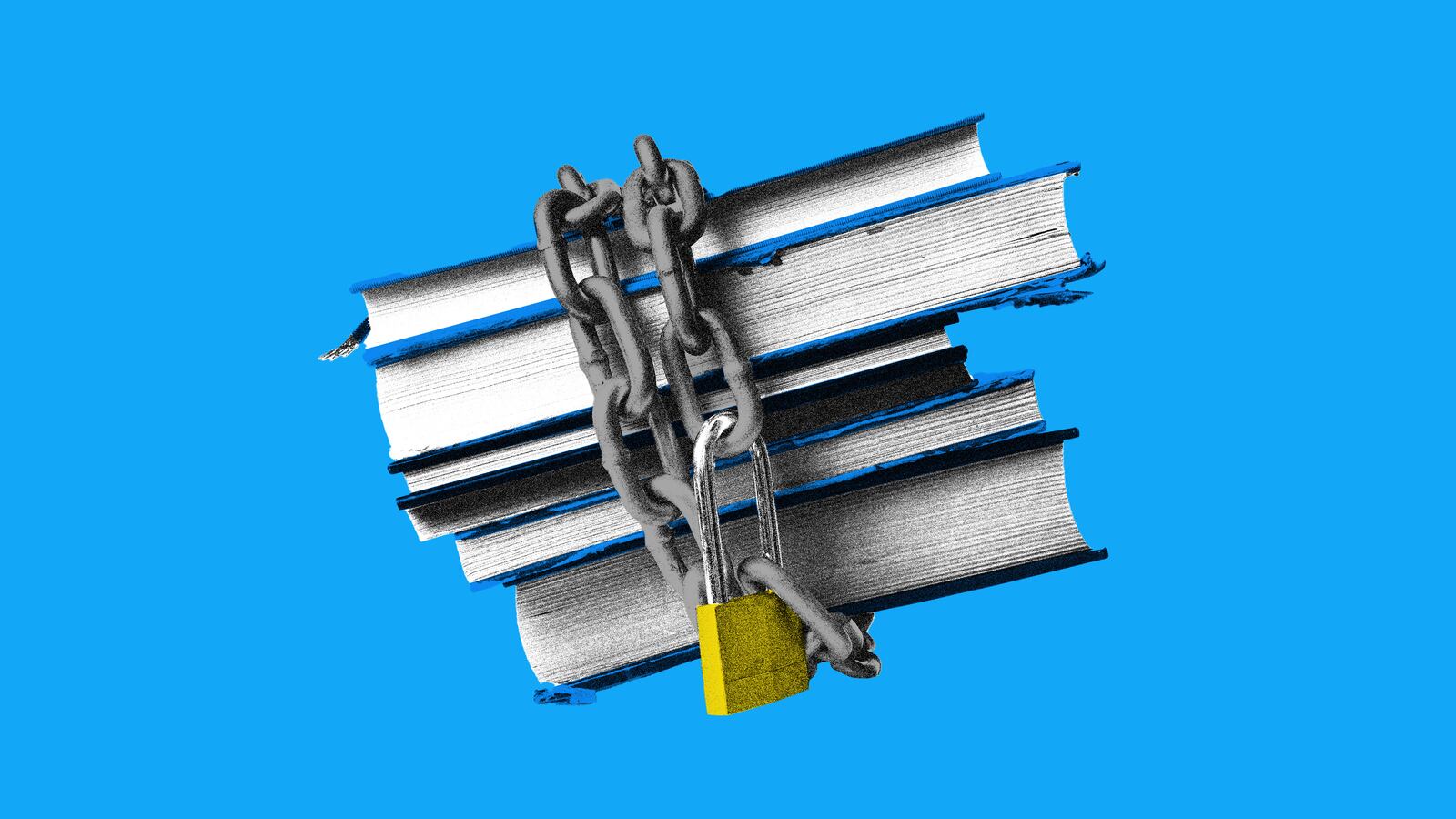Get more news and opinions in the twice-daily Beast Digest newsletter. Don’t miss the next big story, sign up here.
The Passover Seder, because it is a meal accompanied by a book, always feels like the most Jewish of Jewish rituals. The book, the Pesach Haggadah—part instruction manual, part prayer book—transforms the meal into a spiritual reflection of the Exodus from Egypt.
Seder announces the arrival of spring and the Jewish season of freedom. This Passover, facing a wave of book bans across the country, American Jews must heed the Haggadah’s wisdom about the symbolic and material danger of banning books.
Early in the Seder, after breaking the middle matzah and reciting the four questions, the Haggadah tells the story of five rabbis: “It happened once [on Pesach] that Rabbi Eliezer, Rabbi Yehoshua, Rabbi Elazar ben Azariah, Rabbi Akiva, and Rabbi Tarfon were reclining in Bnei Brak and were telling the story of the Exodus from Egypt that whole night, until their students came and said to them, ‘The time of [reciting] the morning Shema has arrived.’”
The text implies the rabbis, fueled by the tireless power of their faith, studied through the night. But tradition offers an alternative interpretation: they could not see the sun because they were hiding in a cave planning the Bar Kokhba revolt, a war which started in 132 A.D. and lasted four years; the students were alerting their teachers to the arrival of Roman soldiers.
This interpretation gathers the rabbis into the folds of history, on the brink of a war for Jewish self-determination which took the full might of the Roman army to crush. Recent events have demonstrated it’s overwritten. We know from the Talmud that the Romans had forbidden Jewish texts. The rabbis were breaking the law. The soldiers were not coming to crush a war, they were coming for the books.
All across America, people are banning books. Local governments starve libraries of funding. Governors sign bills limiting students’ access to shelves. Networks of conservative activists distribute lists of titles to target at school board meetings. The American Library Association recently reported that the number of requests for censorship nearly doubled in 2022.
Whether the topic is race or gender or history, the book banners believe people do not deserve access to the full range of thought or expression on these matters. The ideas themselves must be censored out of public conversation. We are not meant, and must not be allowed, to consider them on their merits. And a book, printed words on bound paper, is little more than a sturdy and elegant contraption for the consideration of ideas.
Book banners cannot abide this, dreaming in their limited fashion of an ordered and inconsiderate world.
After the Bar Kokhba war, Emperor Hadrian issued edicts designed to devastate Jewish culture and throttle the Judeans’ will for independence. For the rabbis of the Talmud, the Exodus story created context for Jewish life under imperial Roman rule; the titles on the list circulated by “Moms for Liberty” contain similar stories.
Can’t get enough from The Daily Beast? Subscribe to the twice-daily Beast Digest newsletter here.
When I worked at a children’s bookstore, I saw how certain YA titles empowered and affirmed children who were lost and lacking context. These books have the power to save lives, and yet, all over the country, parents are anxious to deny other people’s children access to them.
We mostly think of book banning as an act perpetrated on society, an assault on the culture. Harder to understand is why these attacks feel intimate, personal, less one massive crime than a million acts of malice targeting millions of individuals.
For as long as I can remember, I have been overwhelmed by the sheer volume of experience that is living. This manifests, in part, in an unyielding need for more context. A means of making sense. This need is never satisfied, but feeding it scales the magnitude of existence into something manageable. I do not know what I would be without books.
Beyond a stilted context for my own place in the world, books also taught me something of empathy. If I—born with so many social and economic advantages, inherited and socially assigned—feel starved of context and understanding in the face of a cruel and unyielding world, then I can only imagine how much deeper that hunger would throb if society seemed intentionally constructed to marginalize me.
Banning any book is a display of moral cowardice; to limit access to the books which might help contextualize life in the United States today is base and wicked.
On the eve of the Exodus from Egypt, Moses tells the Hebrews their journey will mean nothing unless the story is retold in each generation. True freedom revels in the freedom to remember, to tell one’s story. This is why we have Seder. But the tale of the five rabbis studying in their cave reminds us: eventually, inevitably, they come for the books. They come because of the books.
And, like the annual recounting of our liberation, in every generation it is a Jewish obligation to set ourselves against them.
Sign up for the Beast Digest, a twice-daily run down on each day’s top stories. Don’t miss out, sign up here.









